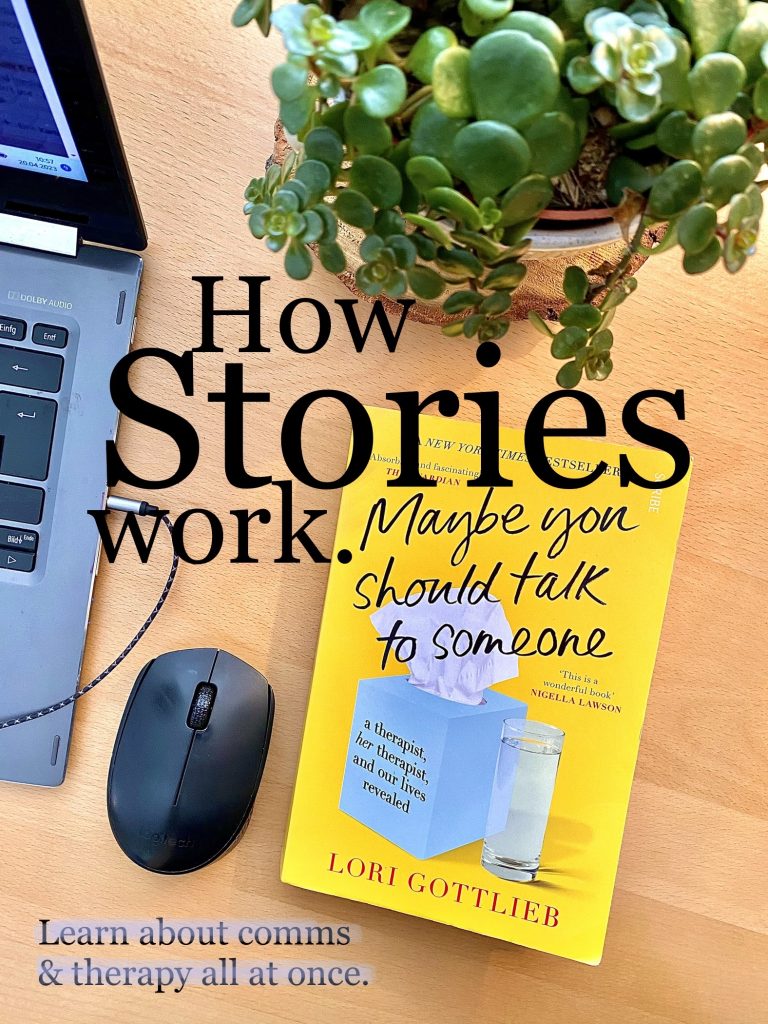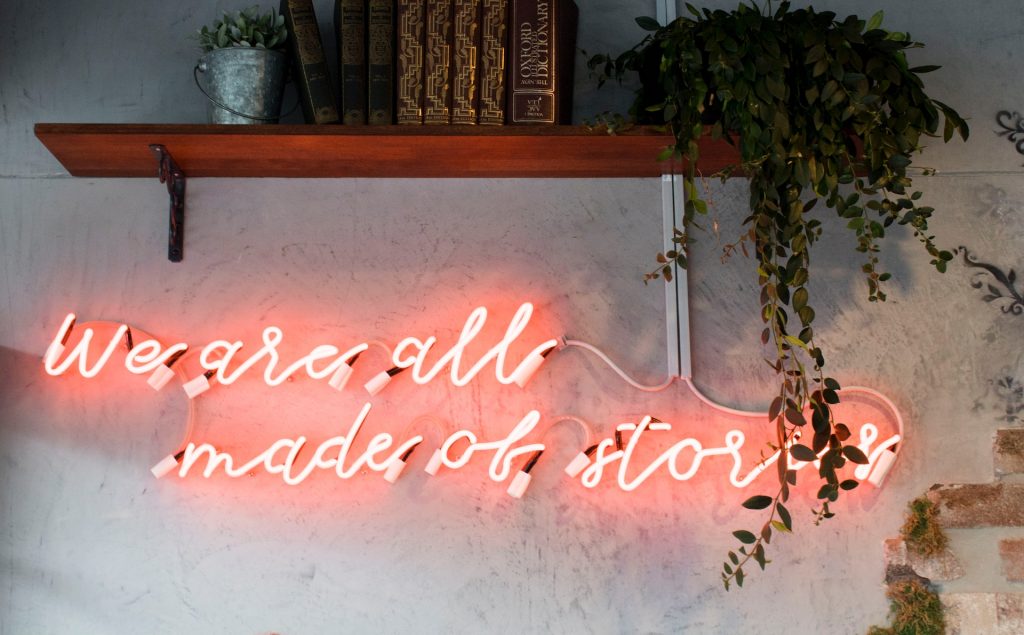[FLASH OF CREATIVE INSIGHT
The book “Maybe you should talk to someone” by therapist & writer Lori Gottlieb made me think hard about the universal truths of stories, between #comms and #psychology. Why care? We, and our world, are made of stories.

6 INSIGHTS. IN MY WORDS.
🟠 ALL STORIES BOIL DOWN TO UNIVERSAL QUESTIONS. On a human level they’re something like this: “Everyone lives their own story, but underneath the details we’re forced to face the same essential questions: How do I feel safe in a world of uncertainty? How do I connect?” And in comms we all need to answer “What’s your reason for being?” (PS: don’t forget those WHY questions), as a communicator you know.
🟠 STORYTELLING IS ABOUT BUILDING UP, AND LETTING GO. “We grow in connection with others. Everyone needs to hear that other person’s voice saying, I believe in you. I can see possibilities that you might not see quite yet. I imagine that something different can happen, in some form or another.” “…But part of getting to know yourself is to unknow yourself – to let go of the limiting stories you’ve told yourself about who you are.” Stories only have the power that you give them.
🟠 THE FIRST STORY WE TELL IS NEVER COMPLETE. Give important stories time to unfold, and to change. “The story a patient comes into therapy with may not be the story she leaves with. What was included in the telling at first might now be written out, and what was left out might become a central plot point. Some major characters might become minor ones, and some minor characters might go on to receive star billing. The patient’s own role might change too – from bit player to protagonist, from victim to hero.” And in comms, how often have you been scratching surface level or getting it all wrong?
🟠 STORIES DON’T ALL OBEY THE SAME RULES OF EXPRESSION. So go find the right one. “Wendell [her therapist] and I had a conversation, even if no words were exchanged. He watched me grieve, and didn’t try to make things more comfortable by interrupting or analyzing the issue. He let me tell my story in whatever way I needed to today.”
🟠 STORIES CAN CONNECT US, OR CAN (PURPSEFULLY) KEEP US AT BAY. The seemingly pointless, repetitive, aggressively boring and aggravatingly-angry ones are attempting the latter. “Anger…pushes people away and keeps them from getting close enough to see you. I wonder if John needs people to be angry at him so that they won’t see his sadness.” Deep. Be boring with your therapist to do get stuck, but please don’t do it in comms.
🟠 STORIES HAVE LIMITS TO SHOWING REALITY. Remember to work in the here-and-now, to illustrate, to let different people speak up. ”One on one, therapists get depth but not breadth, words without illustrations. Despite being the ultimate #insider in terms of Julie’s thoughts and feelings, I’m an #outsider here among all these people I don’t know but who knew Julie.…Instead of focusing on a patient’s stories from the outside world, and here-and-now is about what’s occurring in the room.” Whatever you do, don’t get lost in the BIG, generic narratives. Understand what you’re not seeing, the puzzle pieces you’re missing.

The foundations of it all: understanding. Understanding of the self in therapy, understanding of a subject in comms. And that can be pretty humbling.
Here’s to telling and editing stories that help real people.
Hi! I’m a comms professional and creative for social impact. On my CV, I have life experience in leadership. Off it, I know about some hard edges of life. Through it all, I write to connect the dots and help bring out the best in people.
Reach out via LinkedIn or Email if you’re now feeling a tingle of connection, excitement, thirst for more. Or go back to the Blog to keep exploring.





